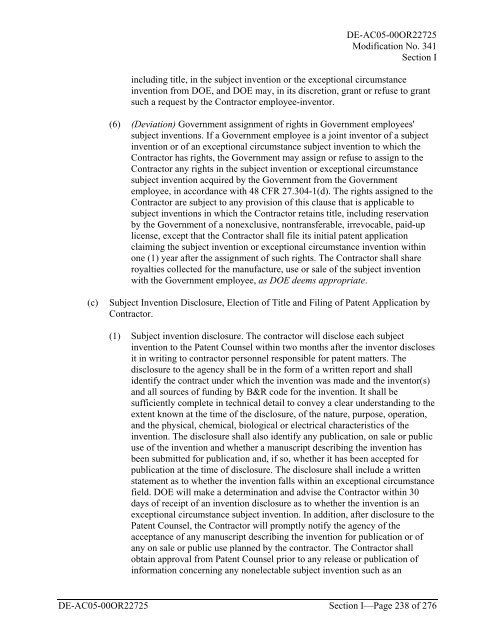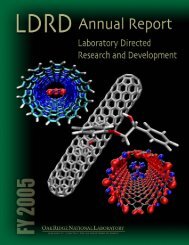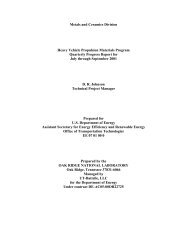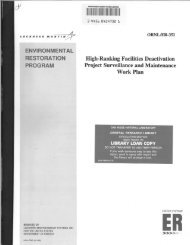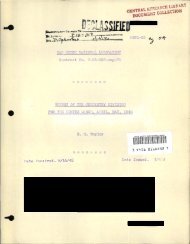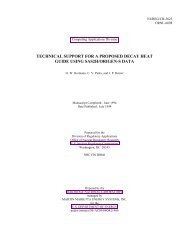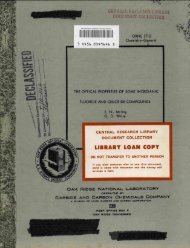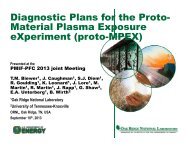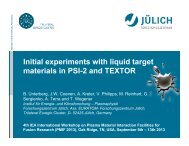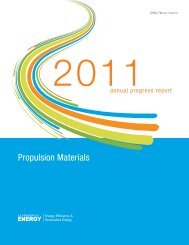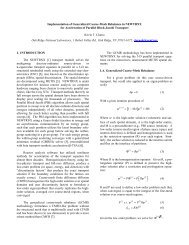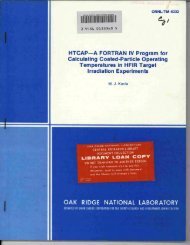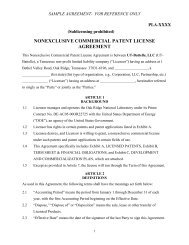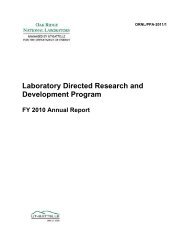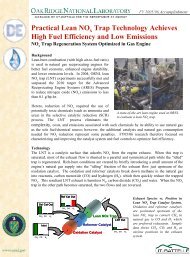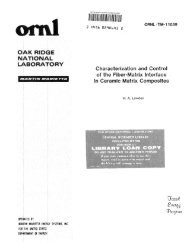part ii - contract clauses
part ii - contract clauses
part ii - contract clauses
You also want an ePaper? Increase the reach of your titles
YUMPU automatically turns print PDFs into web optimized ePapers that Google loves.
DE-AC05-00OR22725<br />
Modification No. 341<br />
Section I<br />
including title, in the subject invention or the exceptional circumstance<br />
invention from DOE, and DOE may, in its discretion, grant or refuse to grant<br />
such a request by the Contractor employee-inventor.<br />
(6) (Deviation) Government assignment of rights in Government employees'<br />
subject inventions. If a Government employee is a joint inventor of a subject<br />
invention or of an exceptional circumstance subject invention to which the<br />
Contractor has rights, the Government may assign or refuse to assign to the<br />
Contractor any rights in the subject invention or exceptional circumstance<br />
subject invention acquired by the Government from the Government<br />
employee, in accordance with 48 CFR 27.304-1(d). The rights assigned to the<br />
Contractor are subject to any provision of this clause that is applicable to<br />
subject inventions in which the Contractor retains title, including reservation<br />
by the Government of a nonexclusive, nontransferable, irrevocable, paid-up<br />
license, except that the Contractor shall file its initial patent application<br />
claiming the subject invention or exceptional circumstance invention within<br />
one (1) year after the assignment of such rights. The Contractor shall share<br />
royalties collected for the manufacture, use or sale of the subject invention<br />
with the Government employee, as DOE deems appropriate.<br />
(c)<br />
Subject Invention Disclosure, Election of Title and Filing of Patent Application by<br />
Contractor.<br />
(1) Subject invention disclosure. The <strong>contract</strong>or will disclose each subject<br />
invention to the Patent Counsel within two months after the inventor discloses<br />
it in writing to <strong>contract</strong>or personnel responsible for patent matters. The<br />
disclosure to the agency shall be in the form of a written report and shall<br />
identify the <strong>contract</strong> under which the invention was made and the inventor(s)<br />
and all sources of funding by B&R code for the invention. It shall be<br />
sufficiently complete in technical detail to convey a clear understanding to the<br />
extent known at the time of the disclosure, of the nature, purpose, operation,<br />
and the physical, chemical, biological or electrical characteristics of the<br />
invention. The disclosure shall also identify any publication, on sale or public<br />
use of the invention and whether a manuscript describing the invention has<br />
been submitted for publication and, if so, whether it has been accepted for<br />
publication at the time of disclosure. The disclosure shall include a written<br />
statement as to whether the invention falls within an exceptional circumstance<br />
field. DOE will make a determination and advise the Contractor within 30<br />
days of receipt of an invention disclosure as to whether the invention is an<br />
exceptional circumstance subject invention. In addition, after disclosure to the<br />
Patent Counsel, the Contractor will promptly notify the agency of the<br />
acceptance of any manuscript describing the invention for publication or of<br />
any on sale or public use planned by the <strong>contract</strong>or. The Contractor shall<br />
obtain approval from Patent Counsel prior to any release or publication of<br />
information concerning any nonelectable subject invention such as an<br />
DE-AC05-00OR22725 Section I—Page 238 of 276


